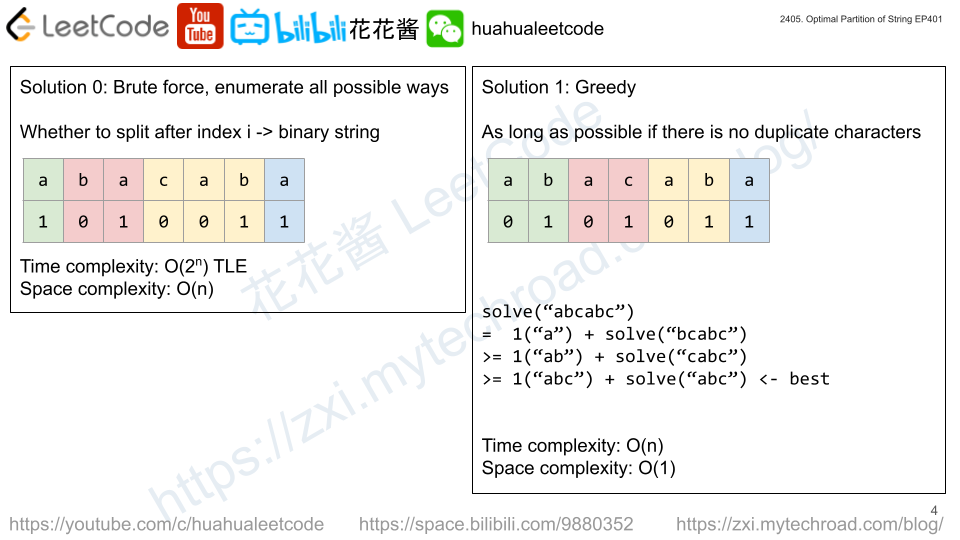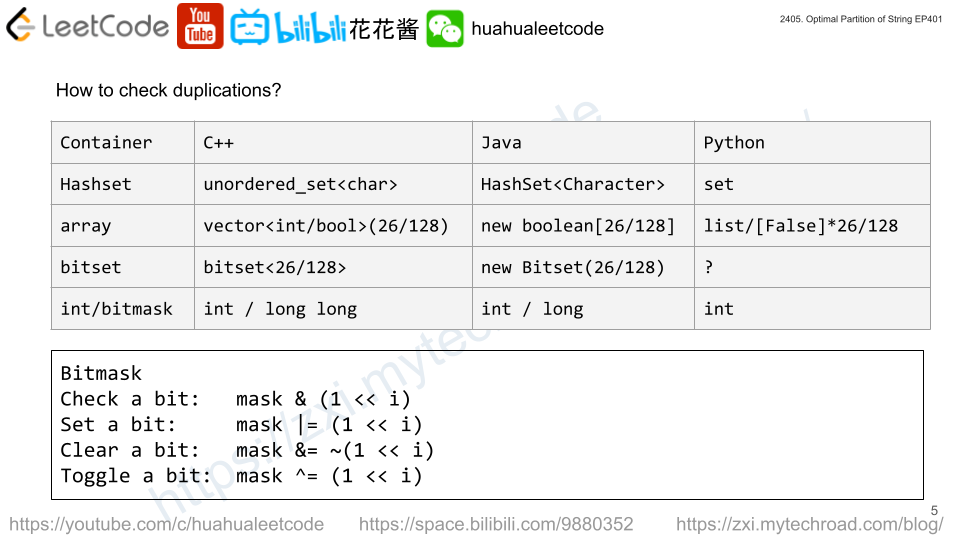You are given a 0-indexed array of positive integers nums. Find the number of triplets (i, j, k) that meet the following conditions:
0 <= i < j < k < nums.lengthnums[i],nums[j], andnums[k]are pairwise distinct.- In other words,
nums[i] != nums[j],nums[i] != nums[k], andnums[j] != nums[k].
- In other words,
Return the number of triplets that meet the conditions.
Example 1:
Input: nums = [4,4,2,4,3] Output: 3 Explanation: The following triplets meet the conditions: - (0, 2, 4) because 4 != 2 != 3 - (1, 2, 4) because 4 != 2 != 3 - (2, 3, 4) because 2 != 4 != 3 Since there are 3 triplets, we return 3. Note that (2, 0, 4) is not a valid triplet because 2 > 0.
Example 2:
Input: nums = [1,1,1,1,1] Output: 0 Explanation: No triplets meet the conditions so we return 0.
Constraints:
3 <= nums.length <= 1001 <= nums[i] <= 1000
Solution 1: Brute Force
Enumerate i, j, k.
Time complexity: O(n3)
Space complexity: O(1)
C++
|
1 2 3 4 5 6 7 8 9 10 11 12 13 14 |
// Author: Huahua class Solution { public: int unequalTriplets(vector<int>& nums) { int ans = 0; const int n = nums.size(); for (int i = 0; i < n; ++i) for (int j = i + 1; j < n; ++j) for (int k = j + 1; k < n; ++k) if (nums[i] != nums[j] && nums[j] != nums[k] && nums[i] != nums[k]) ++ans; return ans; } }; |

